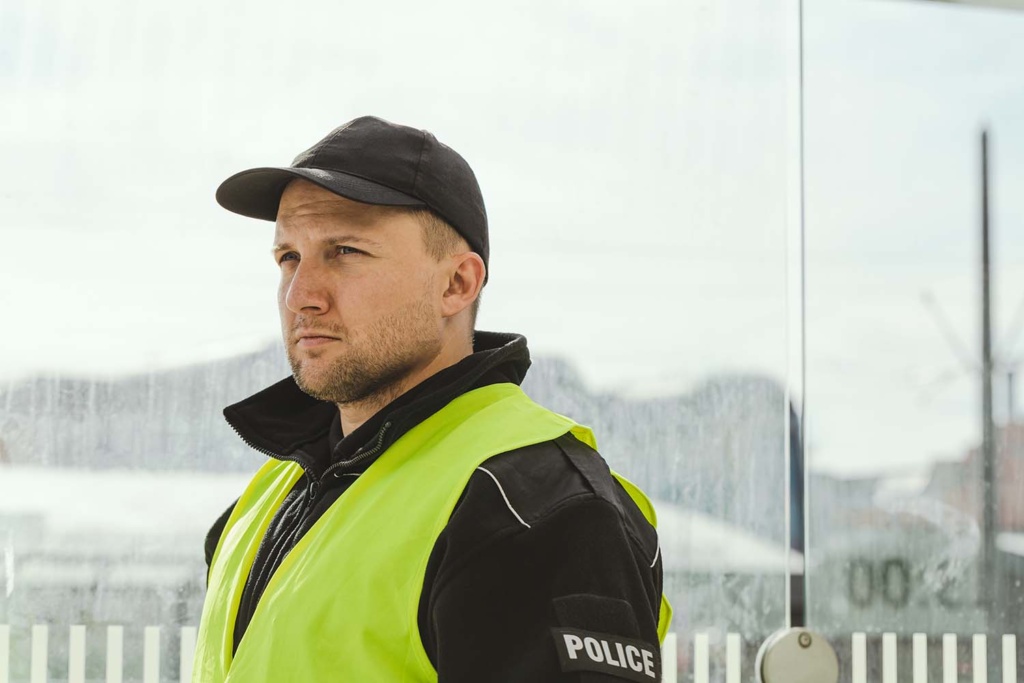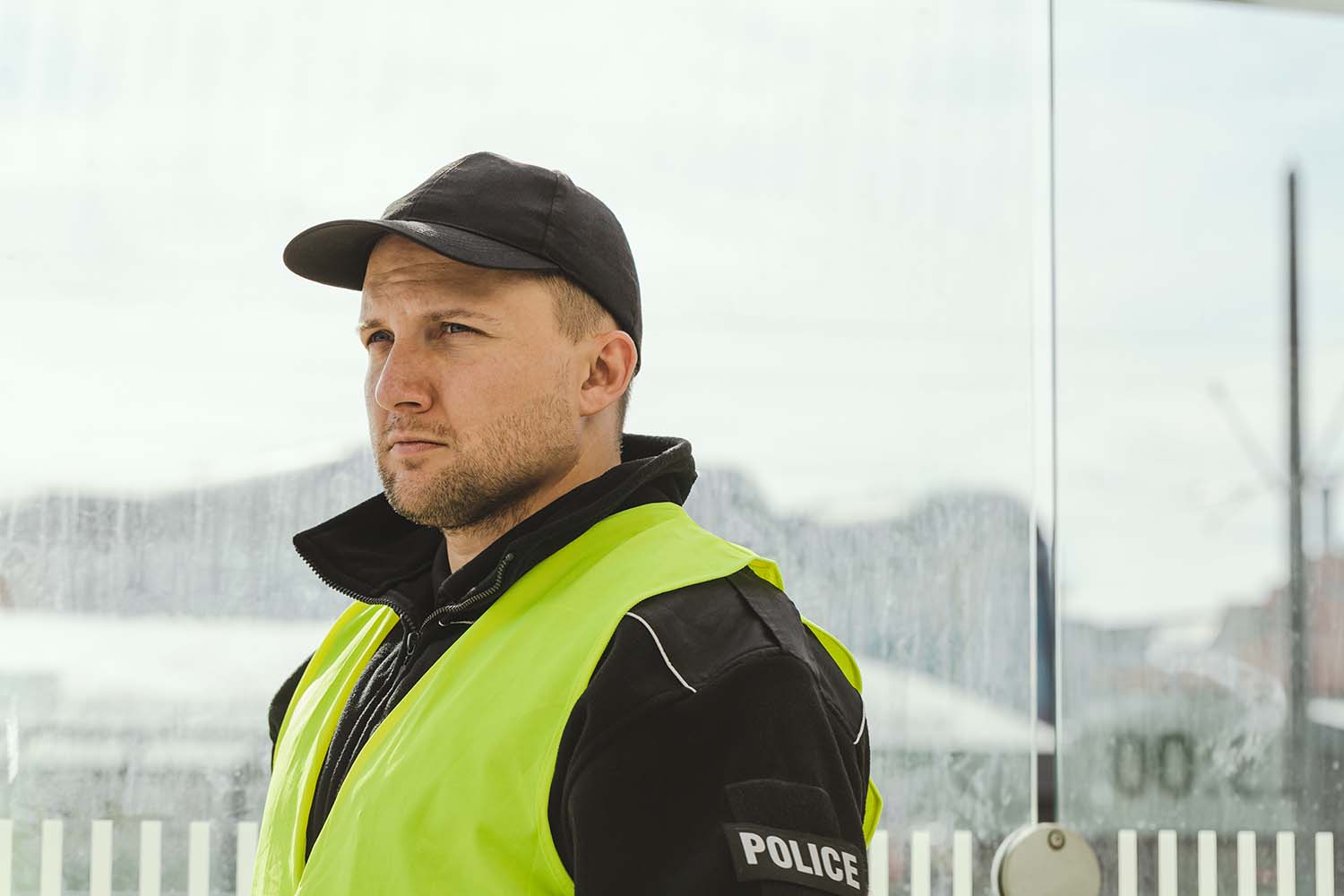The hospitality industry focuses on guest satisfaction as a driving force behind day-to-day operations. Along with satisfaction, hotel safety is a top priority – both of guests and the employees working within a facility. Because of this, most accommodations employ multiple team members responsible for ensuring that safety daily. Especially in larger establishments, it takes a team to keep facilities safe for all. These staff work daily to address any safety concerns and create a space that isn’t dangerous for those entering the building. Often, this happens behind-the-scenes, so these roles can go unnoticed by guests staying at a hotel. However, these are critical roles for the success of the organization.
Courtesy Officers: Protecting Against Theft, Disturbances, & Accidents
Easily the most visible employees focused on safety are courtesy officers, who regularly patrol all areas of the hotel property. During these patrols, officers look for potential fire hazards and other safety concerns. Part of this is ensuring only the people meant to be at the property – guests, staff, and occasional vendors or visitors – are present on site. Courtesy officers investigate any issues of overcrowding in spaces or any unauthorized gatherings that may be dangerous if not addressed.
During perimeter patrols, officers also look for signs of intrusion or any vulnerabilities in security or hotel boundaries. Any signs of vandalism, intrusion, or theft are then reported directly to the General Manager, with courtesy officers working collaboratively with them to solve the issue and prevent it reoccurring.
When approved visitors or vendors do need access to the property, officers monitor their presence, escorting them if necessary but ensuring entry and departure are clearly noted.
While the role of a courtesy officer is fairly active, the position also requires strong communication skills. They must properly document any incidents, fire hazards, accidents, or malicious acts in reporta each shift. Also, this person often interacts with guests as they implement facility policies and procedures. So, verbal communication skills are also a great asset.

Porters: Keeping Facilities Safe & Functioning
Hotels and extended stay accommodations take a lot of abuse, with new people constantly filtering in and out and many of whom are hard on furniture and fixtures. Most establishments employ at least one porter to perform needed maintenance and cleaning tasks that ensure everyone within the hotel is safe. Porters keep entryways and exits clear as well as monitor stairways to ensure a safe environment and clear escape routes in the event of an emergency.
A porter’s role extends into the parking lot as well. It’s important at any accommodation to have a clean and safe place for staff and guests to park. When porters notice a potential fire hazard or other safety concern, they report it to management so they can implement a solution. This goes for observed or suspected violations of guest or company policies as well.
Not all of the reasons behind a porter’s role are safety-related. Having a facility that looks presentable and functions well is a top priority alongside safety. Porters work to ensure that is the case, painting or touching up painted surfaces, replacing burnt-out lightbulbs, and ensuring the functionality of all gates and entryways.
Night Attendants: Overnight Protection
Often unnoticed by most hotel guests, night attendants act as overnight security in addition to their customer service responsibilities. Shifts involve performing courtesy patrols throughout common spaces and all entrances and exits. At most establishments, only one entrance is used during the overnight hours. Night attendants ensure all other doors are locked and there are no safety concerns.
Occasionally, guests check in overnight, especially in the case of travel delays. In these instances, night attendants act as the front desk, performing the check-in process and getting guests settled. On the safety side of things, night attendants also conduct courtesy calls with guests once they reach their room – just to make sure they are safe and settled and have no further needs.
In addition to their safety responsibilities, night attendants also help keep a facility clean and prepared for its next day of business. What that entails varies depending on the type of day the hotel had. However, often night attendants will rotate laundry, clean and tidy common areas, and fold the next day’s linen.
Who is Ideal for a Safety Role?
While the three roles mentioned above differ somewhat in terms of daily responsibilities, there are common threads between them that make the positions a good fit for the same type of person. Each of these roles has a public-facing aspect to it as well as collaborations with other staff members. Because of this, employees with strong verbal communication skills are often best suited for them. Attention to detail is another firm requirement in any of these roles. That comes in handy when ensuring hotel areas are clean and free from obstructions as well as when performing security checks. As with any role in hospitality, having a customer-service orientation is key. The ideal candidate for these positions is driven by improving the guest experience.
For those with these characteristics and a desire for their next hospitality role, there are many establishments looking for porters, night attendants, and courtesy officers currently. Prior experience is preferred, but often – companies are willing to train staff on the job and are especially willing to do so with candidates that possess a hardworking attitude.
We keep a database of opportunities that is easily accessible and makes applying for roles quick and simple. With over 50 locations across the country, there are safety roles open in most areas of the country. Check out what is out there today!


